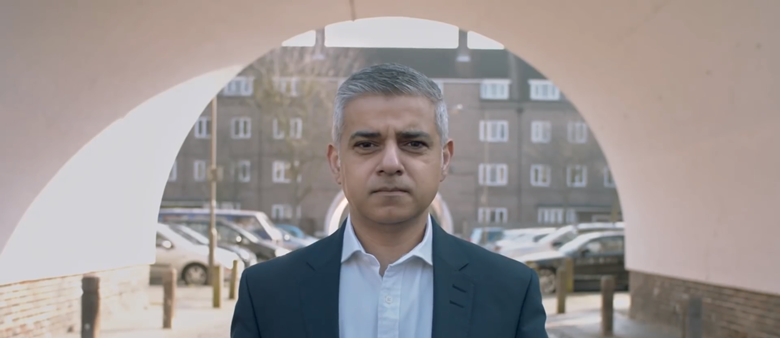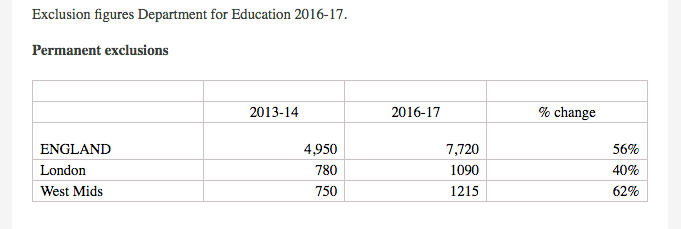Ban on off-rolling among calls to tackle youth crime
Joanne Parkes
Thursday, March 7, 2019
Local authorities should be given control over school exclusions to help mend a "broken" system of support for vulnerable pupils that is driving them into crime, it is claimed today.

Amid increasing concerns over knife crime and a 56 per cent surge in exclusions, the mayor of London has also written to the Prime Minister jointly with police and crime commissioners (PCCs) to urge a national ban on pupil off-rolling.
The practice is highlighted as one of the urgent issues to tackle alongside the suggested powers for councils and better funding for complex needs.
Mayor Sadiq Khan, alongside the PCCs for the West Midlands, South Yorkshire, Humberside, Northumbria, West Yorkshire, Leicestershire and South Wales, argue that there is "no clear criteria and process" for excluding a young person, with schools having different policies to deal with pupil behaviour.
This is made worse by a lack of co-ordination with other key agencies such as health and social services, they say.
Vulnerable children, including those with SEND, are more likely to be either permanently excluded from school or off-rolled, and are at risk of being "sucked into criminality" in the process, according to a statement from the mayor's office.
While it is illegal to exclude children for non-disciplinary reasons, some schools are removing challenging or poorly performing students from the roll using subtle methods - such as by encouraging parents to home school.
In the letter to Theresa May, the mayor and seven PCCs from across the country, say: "Clearly, the way the education system deals with excluded young people is broken.
"It cannot be right that so many of those who have committed offences have been excluded from school or were outside of mainstream education.
"That is why the time has come to act urgently. In the first instance, local authorities need powers and responsibilities over all school exclusions.
"Time and again we are hearing how the fragmentation of the education system, and the breaking of the link between schools and local authorities, has led to a lack of accountability, co-ordination and action.
"There is significant variation by school as to what will result in exclusion, with many excluded pupils moving between local authority areas and also out of their cities. The practice of off-rolling must be outlawed."
- Analysis: Home schooling survey reveals rising concerns over 'off-rolling'
- Analysis: The factors driving the increase in children educated at home
The letter continues: "Our schools are facing significant funding pressures and many interventions for our most vulnerable children are being cut, this cannot be right and schools must have the necessary resources to deliver good interventions and support to those at risk of exclusion."

The revised Ofsted Inspection Framework for September 2019, currently out for consultation, warns schools found to be engaging in off-rolling risk being judged inadequate.
The children's commissioner for England Anne Longfield, who last month published a report examining how children disappear from schools, found that up to 60,000 children were home educated in England last year and 22 per cent of the children withdrawn from school in this way 2017/18 were diagnosed with SEND.
Other research by HM Inspectorate of Prisons has revealed that nine out of 10 children in custody had been excluded.
And according to official statistics, there is an upward trend in knife crime among young people.
In 2016/17 children and young people were involved in 4,000 crimes involving knives or offensive weapons - an 11 per cent increase from five years earlier. One in five perpetrators was aged under 18 - the highest number for seven years.
Downing Street said permanently excluding a child from mainstream school "should only ever be a last resort".
"It is vital that young people who are excluded from mainstream schools can still engage with high-quality education - so that they are less susceptible to involvement in crime either as an offender or a victim," the statement said, adding: "Pupil Referral Units already have a legal duty to safeguard children and protect them from exploitation and abuse including gang activity."
The statement highlighted an ongoing review of exclusions led by MP Edward Timpson, as well as a £4 million innovation fund for alternative provision.




